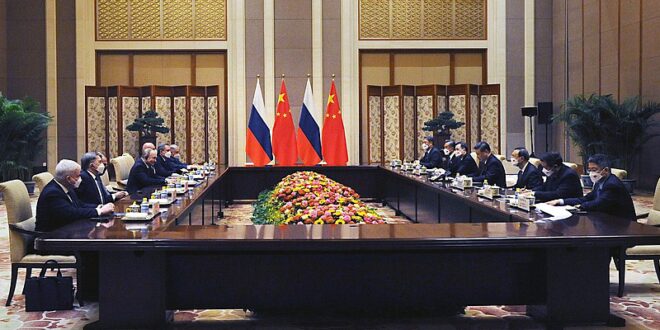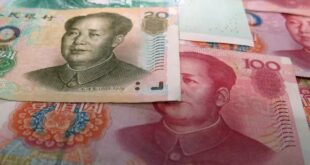Since the beginning of the Russia–Ukraine war, China has been urged to give up its ‘chilling silence’ and help to stop Russian military aggression in Ukraine. Despite international pressure over its policy of expedient neutrality, China is patiently biding its time and waiting on the sidelines as the conflict unfolds. China’s sense of vulnerability is the key factor determining its reaction to the Russia–Ukraine war.
China’s sense of vulnerability is derived from what it perceives to be its uniquely fragile geopolitical position. China is in a peculiar position, prone to the influence of both Russia and the United States, the two geopolitical superpowers. Since the end of the Cold War, China has developed ad hoc cooperation with Russia driven by their common threat perception toward the United States. China expects that cooperative Russia–China relations will serve its interest by diverting the unwanted attention of the United States away from China.
China’s sense of vulnerability has been manifested again in the Russia–Ukraine war. The conflict has put China in a difficult situation by exposing the many paradoxes Beijing faces related to its relationship with Russia. On the one hand, China has been sympathetic to Russian anxiety over the eastern expansion of NATO and stressed that ‘Russia’s legitimate security demands ought to be taken seriously’. But on the other hand, China can’t support Russian President Vladimir Putin’s separatist agenda for eastern Ukraine as it contradicts China’s policies of unification on Taiwan or the South China Sea.
China has tried to repair its damaged relationships with Europe as its trade with the EU is an important engine for its economic growth. But China’s efforts are likely to be countered by its ‘pro-Russia neutrality’.
The so-called ‘no limits’ friendship between China and Russia is uncomfortable for China. Some analysts believe that China was played by Russia. Beijing didn’t think Russia’s invasion of Ukraine was likely before 4 February 2022 when the countries issued a joint statement and flaunted their comradeship. What Putin actually sought was support from China for his military adventure in Ukraine. This was a risky and sly manoeuvre by Putin. Beijing is now attempting to maintain its affinity with Russia, at least for Russian audiences, while also attempting to create distance from Russia, especially in the eyes of Western audiences.
China was presented with the opportunity to play diplomatic role in the Russia–Ukraine war by working more closely with the United States and working as a mediator. But this is not a viable option for China. China has determined that it would be politically naive to alleviate its awkwardly arranged relations with Russia by aligning with the United States, Russia’s greatest rival.
China could find itself the subject of US sanctions or punishment, especially because the US-China trade war under the Trump administration promoted a Cold War mentality among US elites since. This situation makes it almost impossible for China to side with the United States and condemn Russia’s aggression. Despite the call from the United States for China to alter its alignment with Russia, China has remained distant and aloof.
In the virtual meeting held with Chinese President Xi Jinping on 18 March 2022, US President Joe Biden sent a warning that there would be consequences if Beijing provided material support to Russia. Xi responded with a counter-warning, reminding Biden that the United States also has a responsibility to stop the war. Xi’s words can be interpreted as an indirect warning to the United States that if it imposes sanctions on China like those imposed on Russia, it will hurt the United States. China is the world’s second largest economy after all.
China has attempted to be an independent player in the balance of power between Russia and the United States. China’s approach aims to mitigate its geopolitical fragility and to shield itself from Russian and US manipulation. It seems unnatural for a big player in international politics like China to be indifferent to the Russia–Ukraine war. But China’s strategic reasoning means that it is likely to remain detached.
 Eurasia Press & News
Eurasia Press & News




